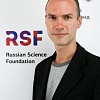Research ethics in Russia: challenges for the Russian Science Foundation
In
Log in if you are already registered
There is a lack of information of research misconduct and fraud such as plagiarized work, fabricated data and forged authorships in Russia, which may be on rise in recent years due to increased competition for research funds.
In the multiple research funders context of Russia, Russian Science Foundation takes precautions to prevent duplicate funding. As a results of cross-checking and screening applications with other research funders (RFBR, Ministry of Science and Higher Education), in 2018 we identified 45 suspicious pairs of duplicate funding. After manual investigation, one project was closed and 12 projects received warnings. This calls for funding agencies in Russia and abroad to take further steps to nip duplicate awards.
Through the monitoring of the grant agreements implementation, in 2016 we found out 956 grants (43%) had no problems identified, which is an improvement compared to 2015 results (35%). The analysis revealed 2099 violations of the essential terms of 1245 grant agreements. This attributes to the webinars for grant recipients to conduct research responsibly as wells as to on-site audits held yearly since 2015. In 2018, RSF completed 49 on-site audits to check 104 projects located across Russia.
On the financial side, we find frequent cases of irregularities such as purchase business coach for international travel, covering cost of travel for researchers who are not the members of the research team, etc. as well as manipulations when research funds were used for non-research purposes.
19% of 9764 publications reported by our grant recipients did not meet quality conditions from the grant agreements. Most common problem has been false funding acknowledgements, false data about publications indexed in Web of Science/Scopus, errors in journal quartiles.
Based on the quallity assessment of grant reports, in the past three years we suspended funding of 41 projects, 358 projects received “early warnings” by the Expert Council so that they will be subject of more detailed investigation later.
| 2015 | 2016 | 2017 | 2018 | 2019 | |
| Terminated Projects | 4 | 13 | 13 | 11 | 7 |
| Early Warnings | 135 | 82 | 55 | 86 | 24 |
Ethics in review is another vital concern for RSF to maintain quality control over a large reviewers database with 1000 honorary foreign reviewers complementing more than 4000 Russian reviewers. Annually dozens of reviewers found violating the review guidelines, get banned for new review assignments. The confidentiality issues remain to be critically important. The cases of“Hello! I’ve got your proposal for review!” or when the winners of public competitions become known before official public announcements are investigated thoroughly.The transparency and misconduct control may be ensured more effectively through big data analysis and new AI-solutions. For example, in late 2018 we in RSF started to use an internally developed AI-based system that helps ease review grind, speed up and minimize biases in review assignments. Similar systems were developed and deployed, for instance, by Australian Research Council and National Natural Science Foundation of China.
As a responsible research funder with zero tolerance for scientific misconduct, RSF strives to educate research community in Russia about integrity issues through special webinars and on-site audit visits and routine training work with grant recipients and peer-reviewers as well as the yearly monitoring of grant agreements implementation. Each year, RSF organses 2-3 webinars for its grantees and 2-3 seminars for reviewers.
| Statistics | 2018 webinars | |
| Date | 7 May | 31 May |
| Duration (min) | 68 | 44 |
| Number of participants | 441 | 494 |
| Number of participating countries | 71 | 84 |
| Number of participating cities | 278 | 418 |
| Number of participating organisations | 14 | 8 |
| Number of pre-registered questions | 28 | 8 |
| Number of questions in chat | 119 | 77 |
Russian Science Foundation was invited to present its integrity-related efforts at the 6th World Conference for Research and Integrity (Hong Kong, 2-5 June 2019). Astonishingly, we learned from the conference organizers that even potential participants of a research integrity conference committed plagiarism. The conference organizers identified 12 suspected cases of plagiarism and 18 suspected cases of self-plagiarism out of 430 abstracts submitted. This clearly indicates that the ethics in research is certainly not a national problem but it is a global challenge for policy makers, funders, research community and society in general.
RSF funding programs cover only about 10% of researchers and 15% of organizations carrying out research in the Russian Federation. Therefore, we can not assess the current state of research ethics and integrity in the country. For our part, we cooperate closely with other research funding organizations in Russia to prevent duplicated funding and ensure the responsible research practices. We do our best to lead and consistently improve our work in this crucial area, taking into account the best international principles and practices. After all, the credibility and trustworthiness of the results of research that we fund, depend on these efforts.
International relations
Blog: Opportunities for international researchers in Russia
Rating: 1




